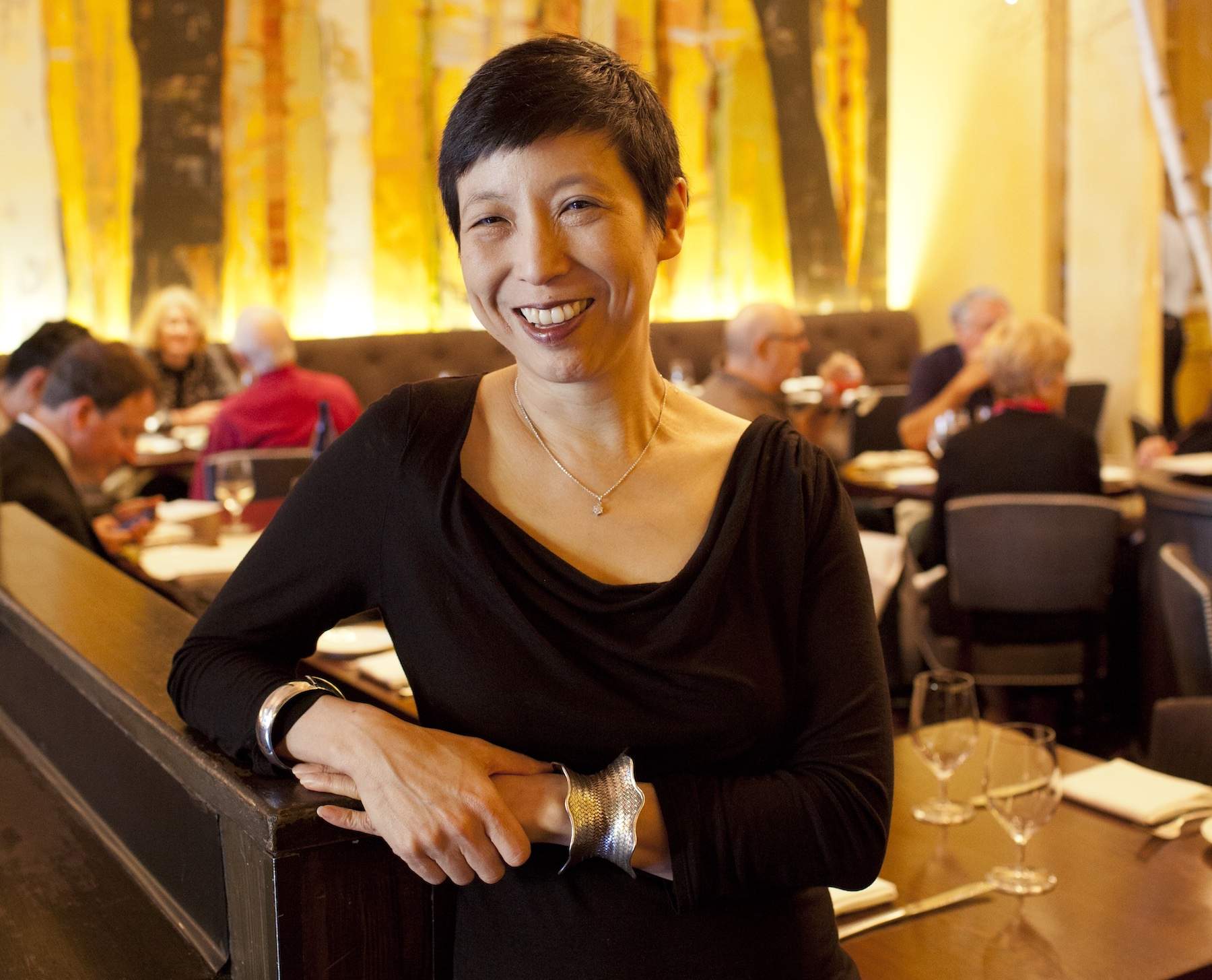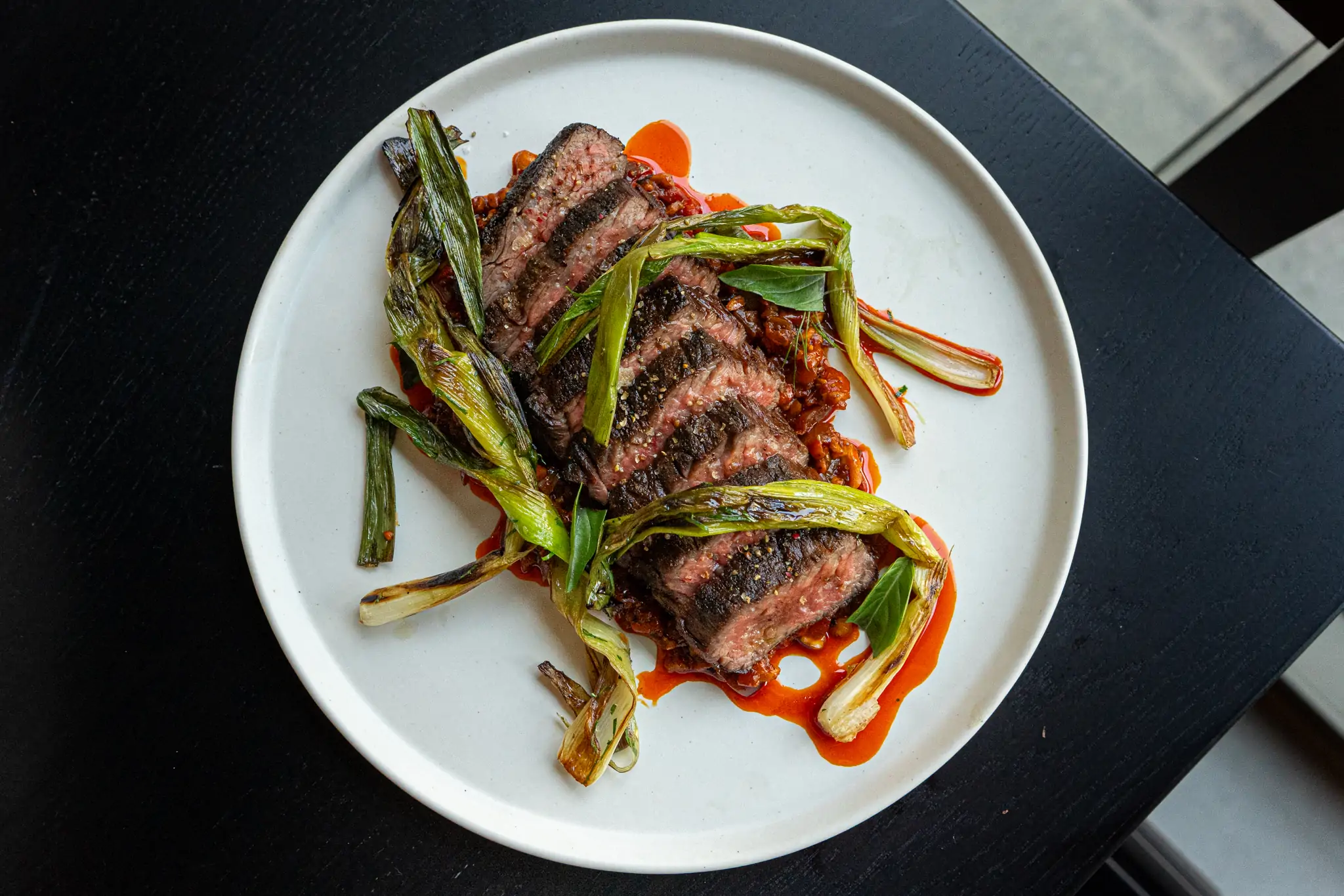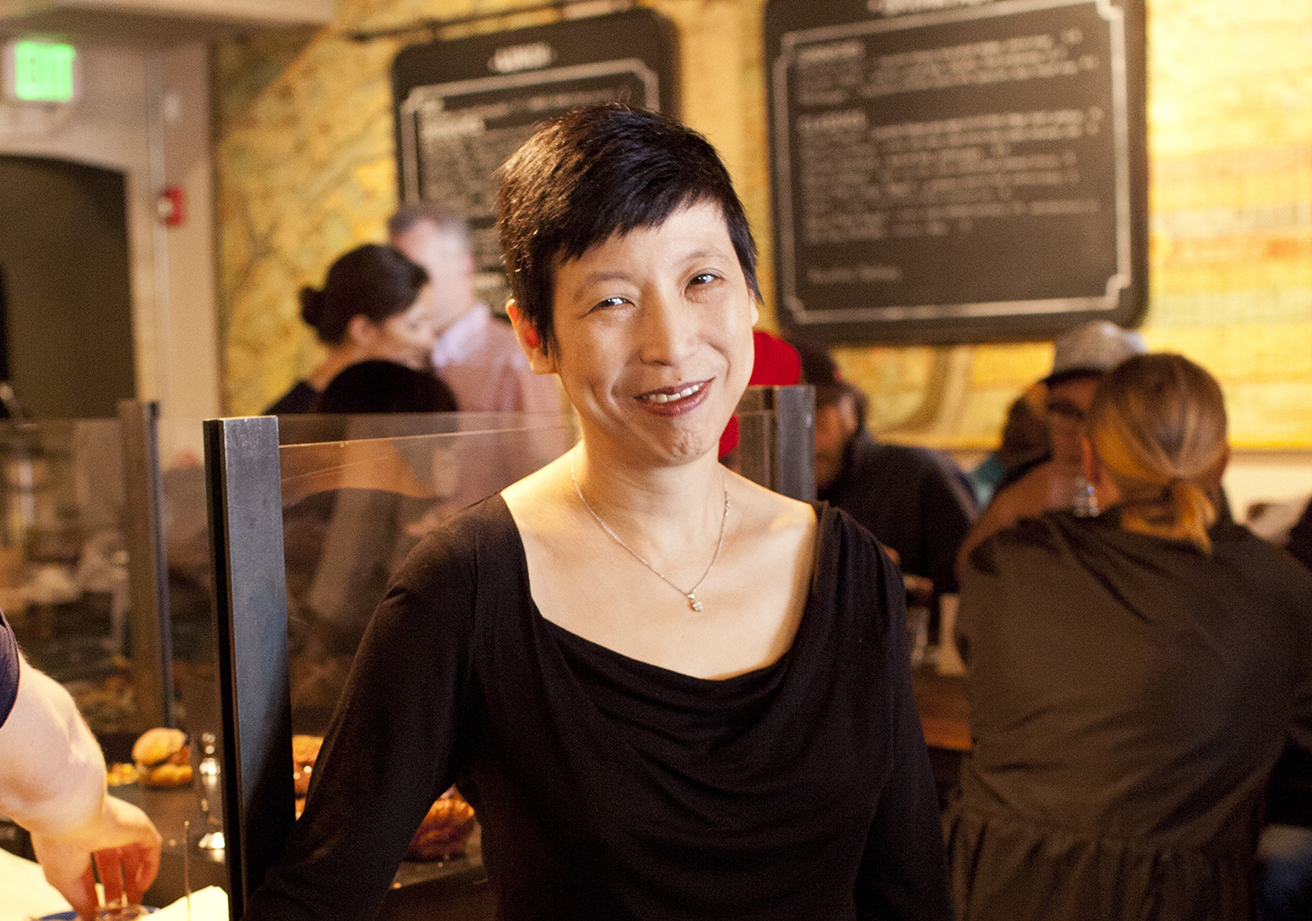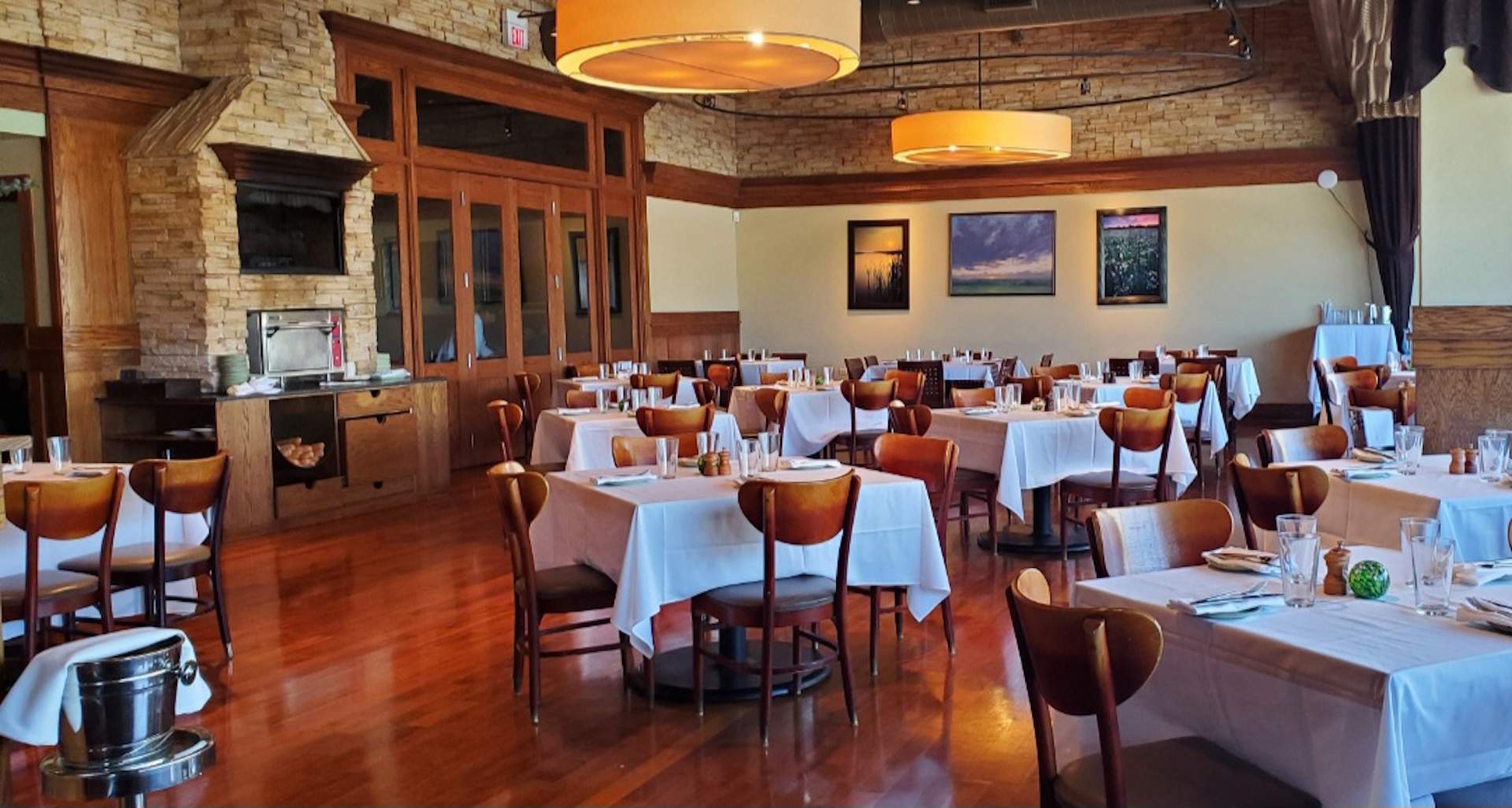To look at the restaurant-rich blocks of Philadelphia’s Old City today, you’d never guess that 25 years ago it was a part of town filled with shops that closed at 5pm and loft apartments occupied by starving artists in search of cheap rent. There was a grimy diner and a quiet wine bar. Stephen Starr had recently opened The Continental martini bar, foreshadowing the neighborhood’s future as a nightlife hotspot.
It was into this changing cityscape that restaurateur Ellen Yin launched Fork in 1997. The American restaurant celebrates its 25th birthday this month. Through an era defined by its obsession with celebrity chefs, Yin’s the rare non-chef restaurateur whose own vision shaped an icon. She’s a pioneer in an industry where both women and Asian Americans are underrepresented in leadership roles.
“I study the industry a lot. I read a lot. And I dine out a lot,” she says. “When it comes to staying ahead of the trends, it’s about watching everything that’s happening and seeing it in a new light.”
An origin story
To understand what drives Yin’s success, it helps to picture her as a shy, Chinese American teen in a mostly white North Jersey suburb during the 1980s. She didn’t fit in at school, where kids made fun of her for being different.
Yin’s life changed when she got an after-school job at a local French restaurant. “It immediately became a second home to me,” Yin recalled in a 2022 TEDxPenn talk. “You were accepted no matter who you are.”
Over her two and half decades as Fork’s owner, the memory of that bone-deep sense of belonging has guided her. She says her dream of opening a restaurant was born way back then. At the restaurant, her shyness or Asian American identity didn’t make her feel alone. Her willingness to work hard at hospitality made her part of a team.
A restaurant vanguard
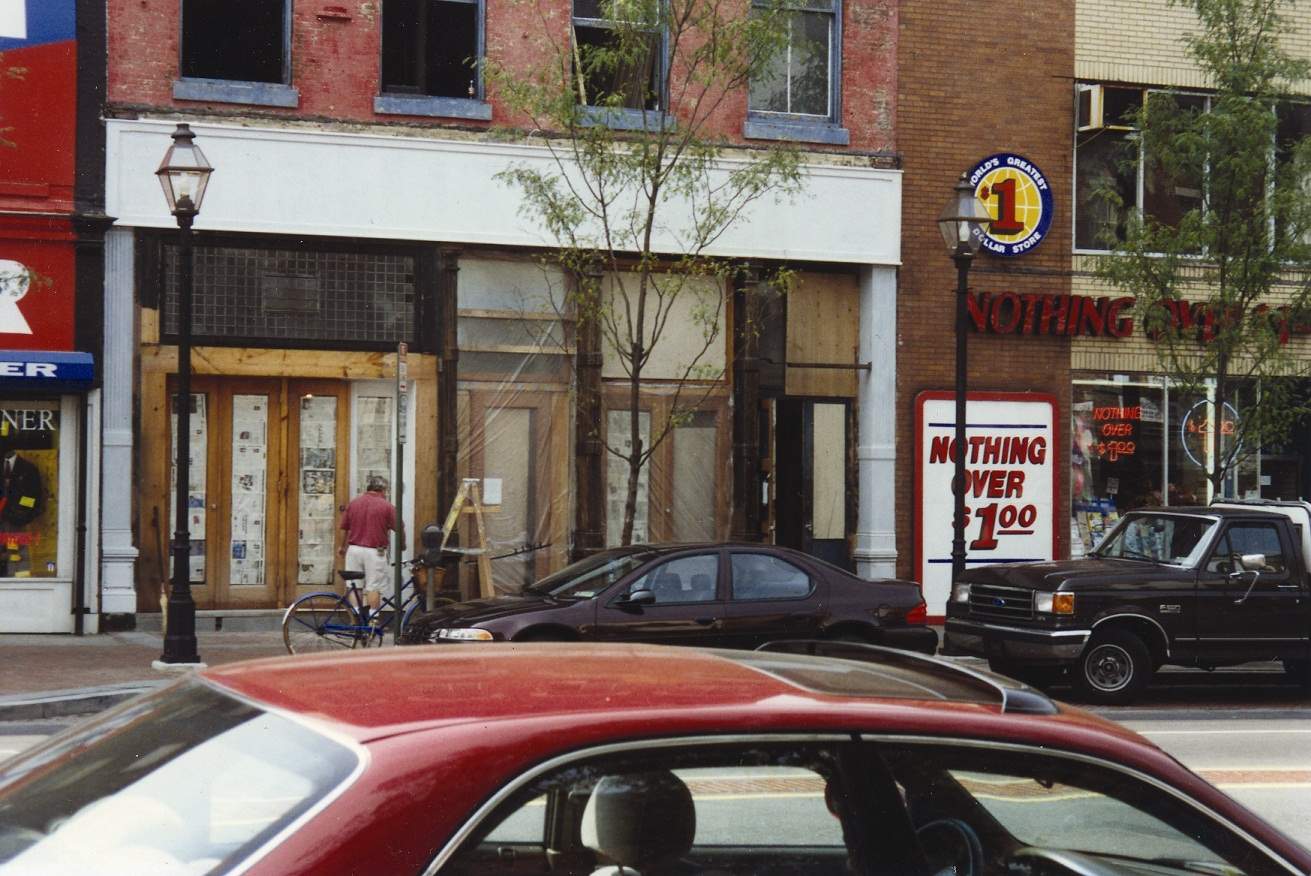
When Yin looked at the raw space that would become Fork, she did something everyone wishes they could do: She saw the future. Dilapidated factory buildings were becoming luxury condos. New people were moving in, and Yin knew exactly what they would want in a neighborhood restaurant. It was what she wanted for herself.
“As someone in my late 20s, I didn’t have access to the level of restaurants that twentysomethings have today,” Yin says. “I wanted something accessible and fresh. I wondered why restaurants never changed their menus and why they served things that weren’t in season when seasonal ingredients taste better.” At the time, local food was not the norm, but Yin made it Fork’s north star.
A few years later, farm-to-table restaurants would proliferate and the sustainability credo would grow meaningless from overuse. But in Philadelphia, Yin was among the first to see it coming. Fork is where many Philadelphians got into local food before it was cool.
This was hardly the last time Yin’s prescience fueled Fork’s success. In 2013, long before “all-day-cafe” became a bonafide restaurant category, Yin opened High Street Philadelphia, which served a take-out friendly breakfast and lunch menu before transforming into a buzzy micro-restaurant at night. Like most things Yin has done, it was ahead of its time.
Holistic hospitality
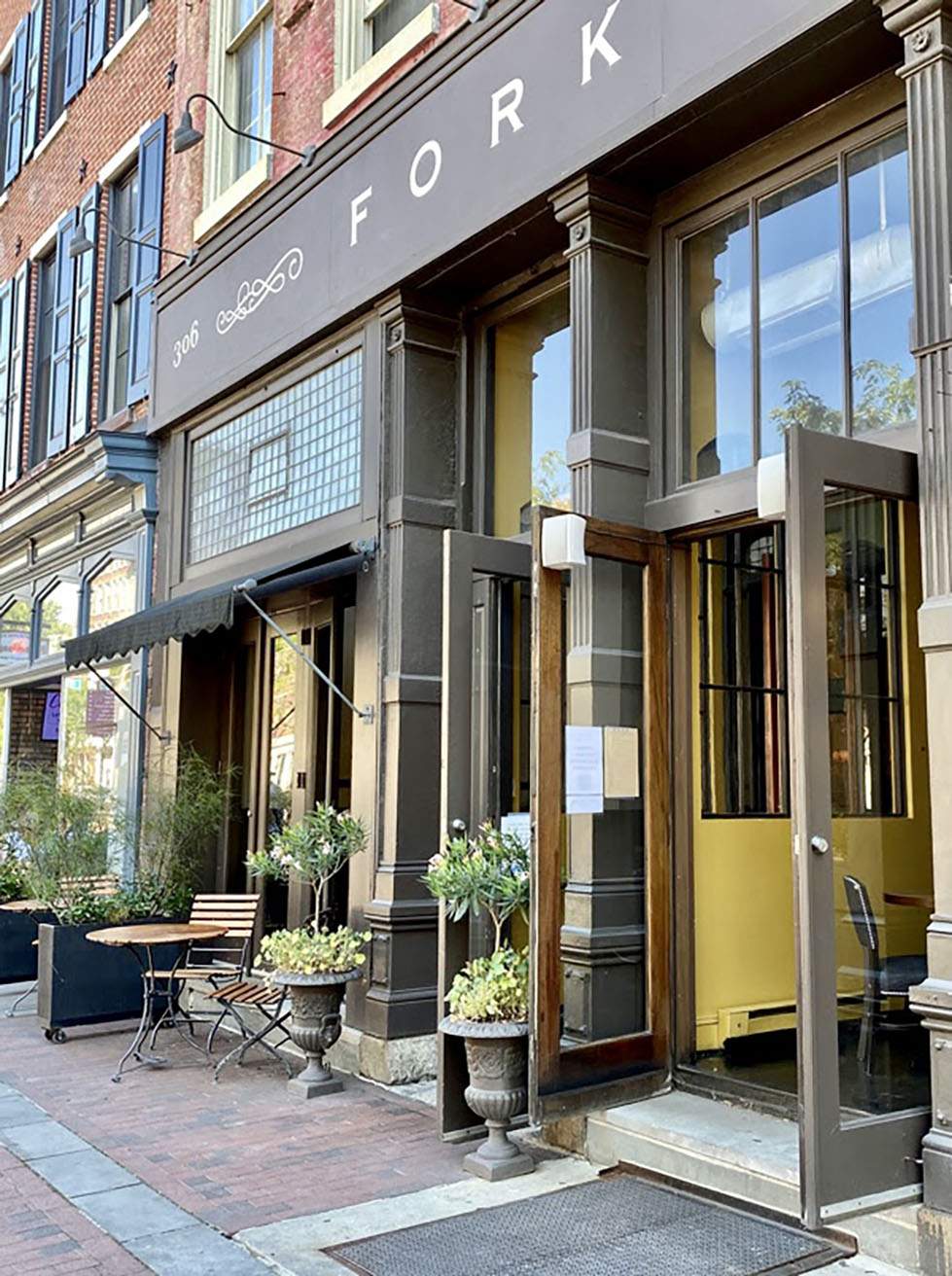
Since 1997, the food at Fork has changed even as the restaurant remains committed to its local-food mission. It skews more fine dining or everyday depending on the chef or the economic mood of the era. But one thing has remained constant: preternaturally good service.
Yin has a role model for superb hospitality that goes back further than her early experiences working in restaurants. “My mother was an incredible entertainer,” Yin says. “She made people feel that she had thought of absolutely everything.” Before shifts, Yin reminds her staff that the devil is in the details.
She believes it’s the way people feel in a restaurant that they remember more vividly than any dishes or decor. “Taking care of people is equally important or maybe even more important than the food,” Yin says. This imperative to take care of others extends to the way she treats her team.
The legion of people who have worked at Fork through the years have internalized her values. “Ellen embodies hospitality, but her secret sauce is her honed ability to connect with the people she meets,” High Street Philadelphia chef de cuisine Christina McKeough says. “She is a natural mentor, leader, and friend. She always sees the good in people and her positivity is infectious.”
For Yin, the concept of service goes beyond the four walls of the restaurant. “The idea of working with the community has always been in my blood,” Yin says.“I worked in nonprofits doing community building and program development.”
The last few years have only brought the importance of community service forward in Yin’s life. As a response to COVID shutdowns and the spike in incidents of hate against Asian Americans, Yin founded The Wonton Project. It began as a pop up selling wontons made from her mother’s recipe. To date, it has raised $15,000 for non-profits Asian Americans United and Asian Americans Advancing Justice.
Yin is also a co-founder of the Sisterly Love Collective, an organization uplifting women food entrepreneurs. A recent dinner series raised $25,000 for the advocacy group Women Against Abuse.
The future of Fork
Yin says all those reinvention experiences helped her navigate the pandemic. “We already knew how to experiment. We’d been doing it for years,” she says.
Nonetheless, even with a quarter century of experience as a restaurateur, Yin seems the opposite of burned out. She simmers with optimism, ideas, and plans for Fork’s future that she’s not quite ready to unveil.
“We have an incredible young chef, George Madosky, a bright talent we want to support,” she says. “We are still eager to grow.”
In celebration of its 25th anniversary, Fork is hosting a series of events at the restaurant through the end of the year, including dinners with several Fork alums such as John Patterson and Christina Mckeough.
Joy Manning is a food writer, recipe developer, and podcaster based in Philadelphia.

